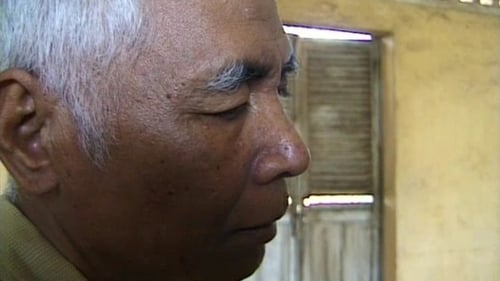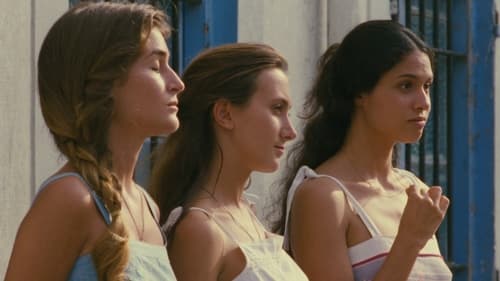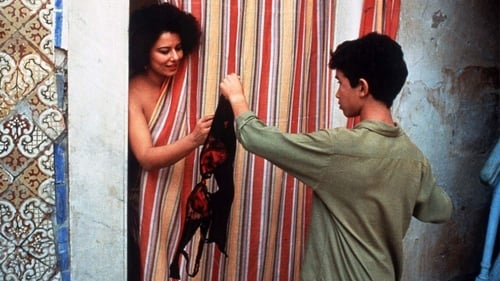
Editor
Победитель «Особого взгляда» Канн-2013, документальный фильм без документа: камбоджийский режиссер Ритхи Пань рассказывает о детстве, проведенном при Пол Поте в трудовом лагере, где погибли его родители и другие родственники. Хроники того времени почти не осталась (только официоз, снятый на пленку шосткинского объединения «Свема»), поэтому свидетелями обвинения становятся фигурки из пробкового дерева, при помощи которых Пань разыгрывает события почти сорокалетней давности. Потрясающий фильм об идеологии, памяти и ручейке культуры, который — сколько его ни прерывай — все равно прорвется и перетечет в будущее.

Editor

Editor
The film centers around a young French widow and her two adolescent children attempt to carve out a meager life for themselves by farming rice fields alongside the ocean in French Indo-China in the 1930's. Their efforts are hampered each year by the presence of the sea, which invariably floods the fields with saltwater and wipes out the crops. In desperation, the mother realizes that their only hope lies in the construction of a sea wall to prevent continued flooding, but the mother must cut a swath through the local bureaucracy in an almost Sisyphean attempt to make this happen. Meanwhile, her obstinate daughter, Suzanne, draws the romantic obsessions of a well-to-do Chinese gentleman, Monsieur Jo; though he could easily provide a way out, the possibility of a romantic relationship between Jo and Suzanne could just as easily fall prey to local racial prejudices that would damage or ruin the lives of both.

Editor
A blend of fact and fiction, based on the actual lives of the actors, the film depicts a troupe of actors and dancers struggling to practice their art in the burned-out shell of Cambodia's former national theater, the Preah Suramarit National Theater in Phnom Penh.

Editor
Documentary of the S-21 genocide prison in Phnom Penh with interviews of prisoners and guards. On the search for reasons why this could have happened.

Editor
In 1999 a fibre-glas wire was installed from Thailand to Vietnam straight trough Cambodia. Rithy Panh shows us the work done in Cambodia to connect Khmer-society to "modern world". Farmers, soldiers and children work for a living there and unearthen skulls and bones -their remains from PolPot-regime you can see. The fear in their mind is portrayed by Rithy Panh in this documentary. As the other work done by Rithy Panh this deals with his people. I like it very much! The movie was awarded 1999 at "Visions du Réel" in Nyon (Switzerland) and at "Cinéma du Réel" in Paris.

Editor
Set in the newly-pacified Phnom Penh, this film is about the return to civilian life of Cambodian soldiers.

Assistant Editor
Summer, 1967. La Goulette, the touristic beach of Tunisi, is the site where three nice seventeen-year-old girls live: Gigi, sicilian and catholic; Meriem, Tunisian and Arab; Tina, French and Jewish. They would like to have their first sexual experience during that summer, challenging their families. Their fathers, Youssef, Jojo and Giuseppe, are old friends and their friendship will be in crisis because of the girls, while Hadj, an old rich Arab, would like to marry Meriem.

Editor
Based upon documentation of forced confessions made during the Khmer Rouge era in Cambodia, this film reconstructs the relationship of a young woman, Hout Bophana, and Ly Sitha before they were tortured in executed in 1977.

Editor
A poor, rural Cambodian family slowly disintegrates during the cycle of a single rice crop in this moving, and beautifully photographed European drama adapted from a novel by Shahnon Ahmad. Pouev, his wife Om, and his seven children, live in a small rural village in Cambodia. Their whole precarious life depends upon the success of their rice crop. Both husband and wife are worried, but for different reasons. Pouev is concerned because their acreage is shrinking. Om worries about Pouev; what would happen to her and the children if he died or was injured? Her worst fear is manifest after Pouev steps upon a poisoned thorn and dies. Om finds herself heavily burdened with the responsibilities of maintaining the crop and caring for seven youngsters. She suffers paranoia from worrying about whether the children are doing their share and the other villagers lock her up leaving eldest daughter Sokha to bring in the crop.

Editor
Юный Нура в свои двенадцать по-прежнему посещает общественную баню вместе с матерью. Но женские прелести, которые он созерцал с самого детства, неожиданно для него самого начинают будить совсем новый и "неожиданный" интерес. В тот момент, когда он начинает отчетливо понимать это, над его юношеской эротико-романтической идиллией нависает угроза... Ребёнок взрослеет и познаёт жизнь, общаясь с простыми людьми — жителями Хальфауина, старого тунисского квартала…

Editor
The story of a Serer village in the groundnut basin of Senegal. Using the words of their ancestors passed on by oral folklore, the villagers trace the history of their village and their difficulties in working their land and living off their produce. Fad'jal is an extraordinary boundary defying film that interweaves ethnographic footage, intimate observation of everyday village life and fictionalised historical scenes. With it, Faye carefully encourages the viewers to reflect both on African history and storytelling, and on the intersection of fiction and documentary.

Assistant Editor
Ngor is a young man living in a Senegalese village who wishes to marry Coumba. Ongoing drought in the village has affected its crop of groundnuts and as a result, Ngor cannot afford the bride price for Coumba. He goes to Senegal's capital city, Dakar, to try to earn more money and is exploited there. He returns to the villagers and shares his experiences of the city with the other men. The story, which shows the daily lives of the villagers, is told in the form of a letter to a friend from a villager, voiced by Faye.











